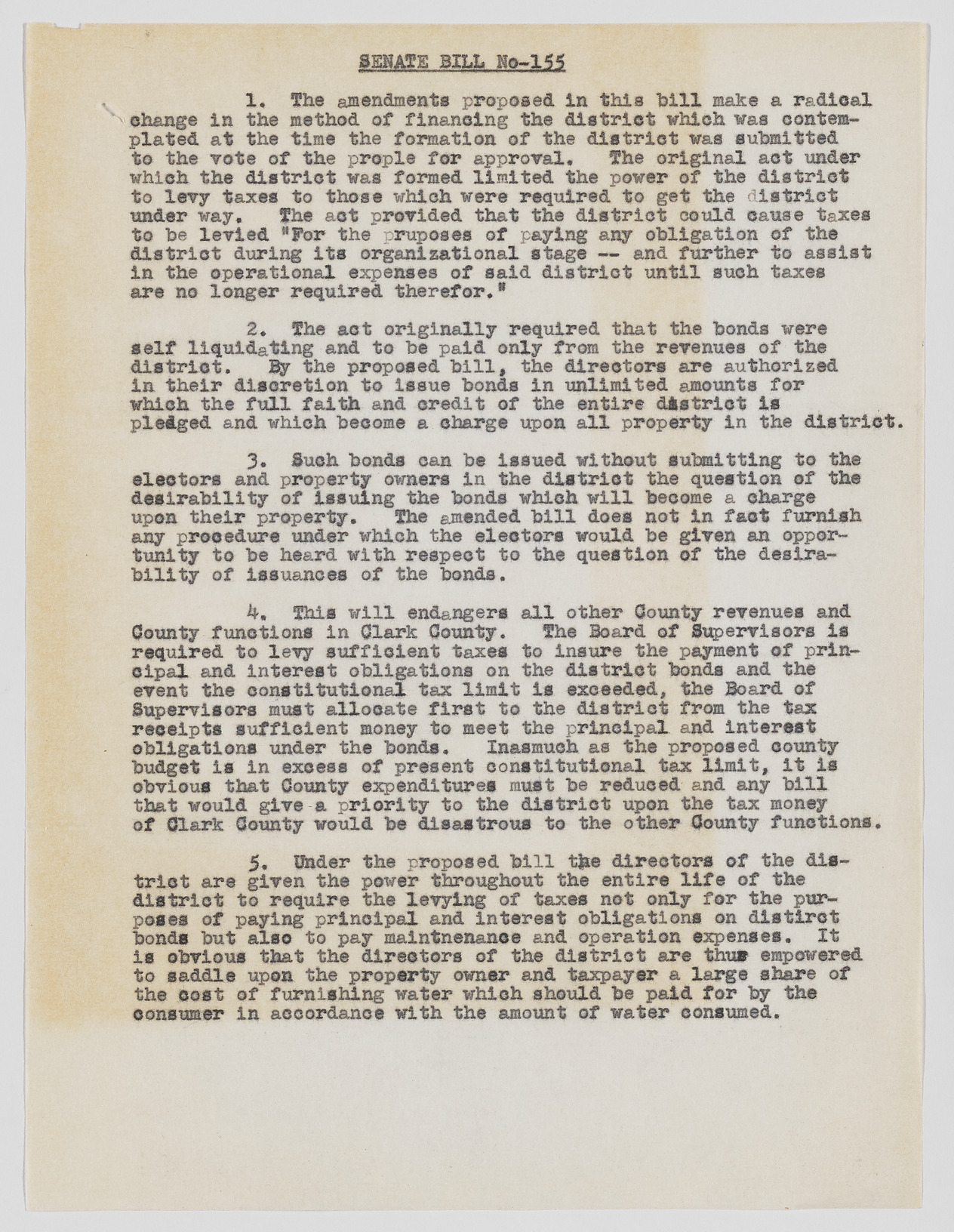Copyright & Fair-use Agreement
UNLV Special Collections provides copies of materials to facilitate private study, scholarship, or research. Material not in the public domain may be used according to fair use of copyrighted materials as defined by copyright law. Please cite us.
Please note that UNLV may not own the copyright to these materials and cannot provide permission to publish or distribute materials when UNLV is not the copyright holder. The user is solely responsible for determining the copyright status of materials and obtaining permission to use material from the copyright holder and for determining whether any permissions relating to any other rights are necessary for the intended use, and for obtaining all required permissions beyond that allowed by fair use.
Read more about our reproduction and use policy.
I agree.Information
Digital ID
Permalink
Details
More Info
Rights
Digital Provenance
Publisher
Transcription
SENATE BILL Ko-155 1, The amendments proposed in this hill make a radical change in the method of financing the district which was contemplated at the time the formation of the district was submitted to the vote of the prcple for approval. The original act under whieh the district was formed limited the power of the district to levy taxes to those which were required to get the district under way. The act provided that the district could cause taxes to he levied ‘•For the* proposes of paying any obligation of the district during its organizational stage — and further to assist in the operational expenses of said district until such taxes are no longer required therefor** 2. The act originally required that the bonds were self liquidating and to be paid only from the revenues of the district. By the proposed bill* the directors are authorized in their discretion to issue bonds in unlimited amounts for which the full faith and credit of the entire district Is pledged and which become a charge upon all property in the district. 3* Such bonds can be issued without submitting to the electors and property owners in the district the question of the desirability of issuing the bonds which will become a charge upon their property. The amended bill does not in fact furnish any procedure under which the electore would be given an opportunity to be heard with respect to the question of the desirability of issuances of the bonds. 4, This will endangers all other Sounty revenues and bounty functions in Olark G?ounty. The Board of Supervisors is required to leyy sufficient taxes to Insure the payment of principal and interest obligations on the district bonds and the event the constitutional tax limit is exceeded, the Board of Supervisors must allocate first to the district from the tax receipts sufficient money to meet the principal and interest obligations under the bonds. In&smuoh as the proposed county budget is In excess of present constitutional tax limit, it is obvious that Sounty expenditures must be reduced and any bill that would give a priority to the district upon the tax money of Qlark Sounty would be disastrous to the other bounty functions, 5. Under the proposed bill the directors of the district are given the power throughout the entire life of the district to require the levying of taxes not only for the purposes of paying principal and interest obligations on distinct bonds but also to pay maintnen&noe and operation expenses. It is obvious that the directors of the district are thus empowered to saddle upon the property owner and taxpayer a large share of the cost of furnishing water which should be paid for by the consumer in accordance with the amount of water consumed.

